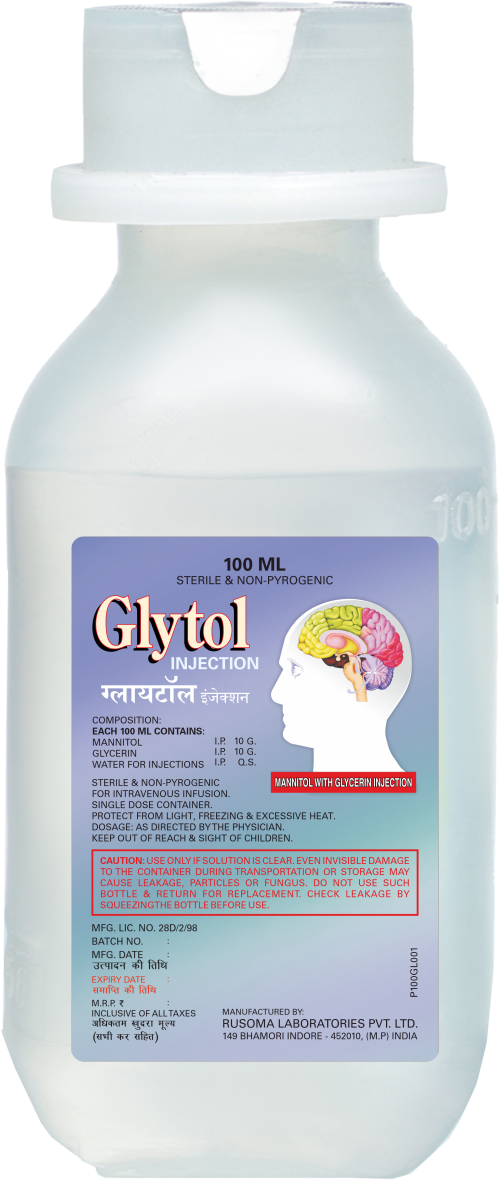Cerebral Edema
Posted on DECEMBER 17, 2021

CEREBRAL EDEMA
The swelling of the brain.
Cerebral edema is excess accumulation of fluid (edema) in the intracellular or extracellular spaces of the brain causing an increase in pressure known as intracranial pressure or ICP. That may disrupt the blood-brain barrier. It is the body’s way of responding to trauma, stroke, or infection. Because the brain is encased in a rigid skull, increased intracranial pressure, can prevent blood from flowing to the brain, block fluids from leaving the brain, & even damage or kill brain cells.
ICP can prevent blood from flowing to your brain, which deprives it of the oxygen it needs to function. It can affect specific regions of the brain or the whole brain depending on the underlying cause. Cerebral edema is a life-threatening condition that can cause permanent brain damage or death if not treated quickly.
Causes :
Cerebral edema categorizes into either vasogenic, cellular, osmotic, & interstitial causes. It can arise from a variety of causes:
Traumatic brain injury: A traumatic brain injury is an acute trauma, such as from a fall or vehicle accident.
Ischemic stroke: An ischemic stroke occurs when a blood clot restricts the flow of oxygen to the brain. A lack of oxygen can damage the brain cells & cause swelling & pressure.
Brain tumor: A brain tumor can press against other areas of the brain or prevent fluid from leaving the brain, causing elevated ICP.
Infection: Infections caused by bacteria or a virus can cause swelling in the brain.
Brain hemorrhage: A brain hemorrhage occurs when a blood vessel in the brain ruptures & leaks. This causes inflammation & an increase in ICP.
High altitude: Cerebral edema can also occur above altitudes of around 4,000 meters.

Symptoms :

The symptoms of Cerebral edema vary widely, depending on the cause, & can be extremely painful. Patient age, brain size, & edema location can also affect symptom severity.
Symptoms of Cerebral edema may include:
- Headache
- Nausea
- Vomiting
- Dizziness
- Memory problems
- Difficulty speaking
- Seizures
- Vision loss
- Neck Pain
- Difficulty moving
- Loss of consciousness
Diagnosis :
To make a diagnosis, a doctor may do:
- Head & neck exam.
- Neurologic exam.
- CT scan of the head to identify the extent & location of the swelling.
- MRI of the head to identify the extent & location of the swelling.
- Blood tests to check for causes of the swelling.
- Lumbar puncture.
Treatment :
Treatment is dictated by the type of neurologic injury, but may include:
Medication: Doctors will use drugs to reduce swelling or blood clots. Initial treatment includes drugs such as: Dexamethasone, Mannitol, Acetazolamide, Furosemide, Diuretics, Corticosteroids etc.
Surgery: In severe cases, surgery may be necessary to reduce ICP. Surgery could involve removing a part of the skull & repairing the damage, such as a ruptured blood vessel. Ventriculostomy is another possible procedure. It involves inserting a plastic tube into the skull to drain excess fluid & reduce ICP.
Hypothermia: This form of therapy involves lowering the body temperature, which can reduce swelling in the brain.
Osmotherapy: Osmotherapy involves using medications to remove water from the brain to help increase blood flow to the brain & reduce ICP.
We have developed Glytol™ for Cerebral Edema’s treatment which contains Mannitol with Glycerin. It is available in 100 ml & 350 ml injection. When used, Glytol rapidly reduces the increased intracranial tension & is an effective & safer option than corticosteroids.

Prevention :
Preventing cerebral edema involves taking measures to protect your head. Some options include:
- Use a helmet while riding two-wheeler, playing sports or doing physical activities to prevent brain injury.
- Control your blood pressure & cholesterol to prevent heart disease & stroke.
- Wear a seat belt when traveling in a vehicle.
- Slowly ascend to high elevations to avoid HACE.
- Avoid smoking to reduce the oxidative & inflammatory risk of stroke.
Disclaimer: Any medical information published on this website is not intended as a substitute for informed medical advice & you should not take any action before consulting with a healthcare professional.
Like this post? Share it with your friends!

